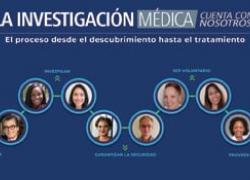(NewsUSA) - Today, millions of Americans live with undetected hypertension, unaware that it can impact even the healthiest of individuals — a lesson that Naomi Saucer* would come to learn firsthand. 1-2
- Today, millions of Americans live with undetected hypertension, unaware that it can impact even the healthiest of individuals — a lesson that Naomi Saucer* would come to learn firsthand. 1-2
In college, Naomi began experiencing migraines, and despite being busy as a full-time student and athlete, she made time to see her doctor. Like many healthy 20-somethings, she didn’t think her headaches were connected to something more serious, and with the help of her doctor, she started taking migraine medications, thinking it would help manage her pain.
But after enduring years of intense discomfort from these terrible headaches, she finally got to the root cause. At age 28, Naomi was diagnosed with high blood pressure. Also known as hypertension, high blood pressure occurs when the force of the blood pushing against the artery wall is too high. Left untreated, hypertension can lead to serious health complications like heart disease and stroke.3-4
The news was shocking, as Naomi thought high blood pressure was only something that impacted older adults with an unhealthy lifestyle. Naomi was young and healthy. She was raised as a vegetarian and was active her whole life— having high blood pressure wasn’t even on her radar of possibilities. What many people don’t know is that high blood pressure can be hereditary and sometimes completely out of their control. Naomi’s grandmother had high blood pressure at an early age, so it was entirely possible that she was going down the same path.
After her diagnosis, Naomi and her doctors tried different medications to lower her blood pressure. While the migraines subsided, she suffered from various side effects from these medications, including nausea and ringing in her ears – and still couldn’t get her blood pressure under control.
“At one point, my pharmacist said my blood pressure medication regimen was something a 60-year-old would take— I’m in my 40’s, so I was nowhere near that age,” said Naomi. “I had an advanced state of hypertension, with some scary moments when I was truly in a hypertension crisis.”
Despite this, the value of perseverance was instilled in her as an athlete. She knew that to maintain her health and ultimate happiness, she needed to find a way to get her blood pressure down. Through her professional experience with medical devices, she proactively researched different treatment options and decided to find and connect with a local physician who performed high blood pressure procedures, also known as renal denervation (RDN). After meeting with her doctor and making sure she was eligible, Naomi was excited for the next step.
The Symplicity blood pressure procedure, which uses the Symplicity Spyral(TM) RDN system, is a minimally invasive way that can help reduce patients’ blood pressure numbers when other options – like lifestyle changes and medications - haven’t worked.5 It utilizes radiofrequency energy to target and calm nerves near the kidneys that can become overactive and cause high blood pressure.6 The Symplicity procedure leaves an 'always on' effect and there is no permanent device left behind.5
 “The Symplicity procedure was one of the best things I could have done for myself,” said Naomi. “The recovery wasn’t bad— honestly, the hardest part was having to take it easy for eight hours afterward, since I’m always on the go!”
“The Symplicity procedure was one of the best things I could have done for myself,” said Naomi. “The recovery wasn’t bad— honestly, the hardest part was having to take it easy for eight hours afterward, since I’m always on the go!”
Now, Naomi is back to doing the things she loves without fearing how it will affect her blood pressure - it’s now more under control. She also feels more freedom and less worry about always having to take her blood pressure medications. She takes regular five-mile walks or hikes, tends to her garden, and has continued her beekeeping passion. Post-procedure, her life is more vibrant in so many ways.
Naomi’s story not only brings attention to alternative treatment options for hypertension— it also raises awareness about the condition among Black women, like Naomi. High blood pressure is a critical issue for Black women. In fact, it’s estimated that 58% of Black women in the United States have high blood pressure. More alarmingly, Black Americans experience five times the mortality from hypertension related disease compared with White Americans.7
No matter how young and healthy you appear to be, if something feels wrong, don’t brush it off. Always see your doctor if you have any health concerns, learn about your family’s health history, and investigate all available treatment options for your diagnosis. Everyone deserves a life that isn’t controlled by their health conditions.
To learn more about clinical trial sites performing renal denervation, visit https://www.hbpstudy.com/
View benefits and risks of the Symplicity™ procedure here.
Not every person will experience the same results. The Symplicity™ blood pressure procedure does have known risks. These risks should be considered in relation to the potential benefits of the procedure. Adverse events include, but are not limited to, bruising and pain. Results may vary.
UC202505661 EN ©2025 Medtronic. Medtronic, Medtronic logo, and Engineering the extraordinary are trademarks of Medtronic. All other brands are trademarks of a Medtronic company. For distribution in the USA only.
* Naomi has received compensation in the past from Medtronic for sharing her experience with the Symplicity blood pressure procedure.
1 U.S. Department of Health and Human Services. The Surgeon General’s Call to Action to Control Hypertension. Washington, DC: U.S. Department of Health and Human Services, Office of the Surgeon General; 2020.
2 High Blood Pressure Facts. Centers for Disease Control and Prevention. Available at: https://www.cdc.gov/high-blood-pressure/data-research/facts-stats/index.html. Accessed Oct 16, 2024.
3 Whelton P, et al. J AM Coll Cardiol. May 15, 2018;71(19):2199-2269.
4 High blood pressure dangers. Mayoclinic.org. Oct 16, 2024.
5 Böhm M, Kario K, Kandzari DE, et al. Efficacy of catheter-based renal denervation in the absence of antihypertensive medications (SPYRAL HTN-OFF MED Pivotal): a multicentre, randomised, sham controlled trial. Lancet. May 2, 2020;395(10234):1444-1451.
6 Coates P, Tunev S, Trudel J, Hettrick DA. Time, Temperature, Power, and Impedance Considerations for Radiofrequency Catheter Renal Denervation. Cardiovasc Revasc Med. September 2022;42:171–177.
7 Aggarwal R, Chiu N, Wadhera RK, et al. Racial/Ethnic Disparities in Hypertension Prevalence, Awareness, Treatment, and Control in the United States, 2013 to 2018. Hypertension. December 2021;78(6):1719-1726.
 - Aunque las enfermedades del corazón se pueden prevenir en gran medida, aun así, siguen siendo la principal causa de muerte en los Estados Unidos. Las enfermedades cardíacas afectan a millones de personas y su impacto no es igual en todas las comunidades.
- Aunque las enfermedades del corazón se pueden prevenir en gran medida, aun así, siguen siendo la principal causa de muerte en los Estados Unidos. Las enfermedades cardíacas afectan a millones de personas y su impacto no es igual en todas las comunidades.
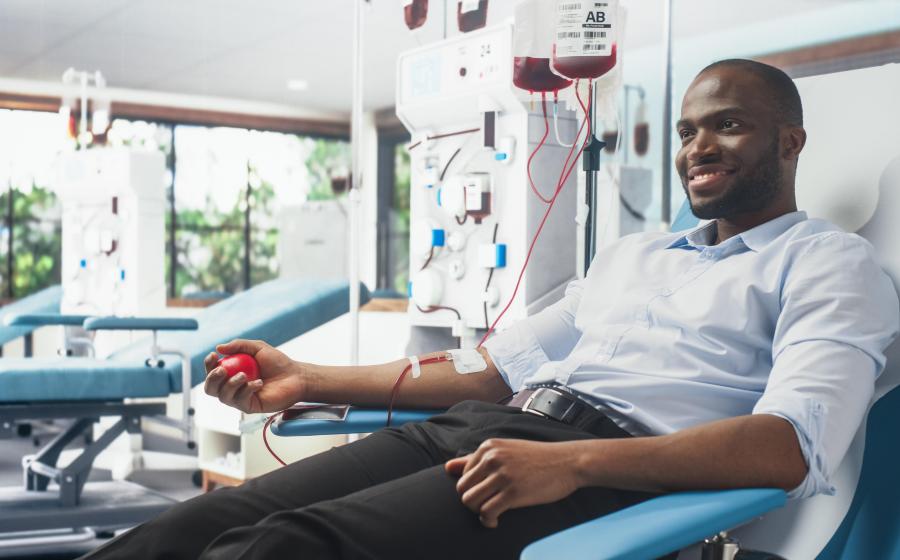
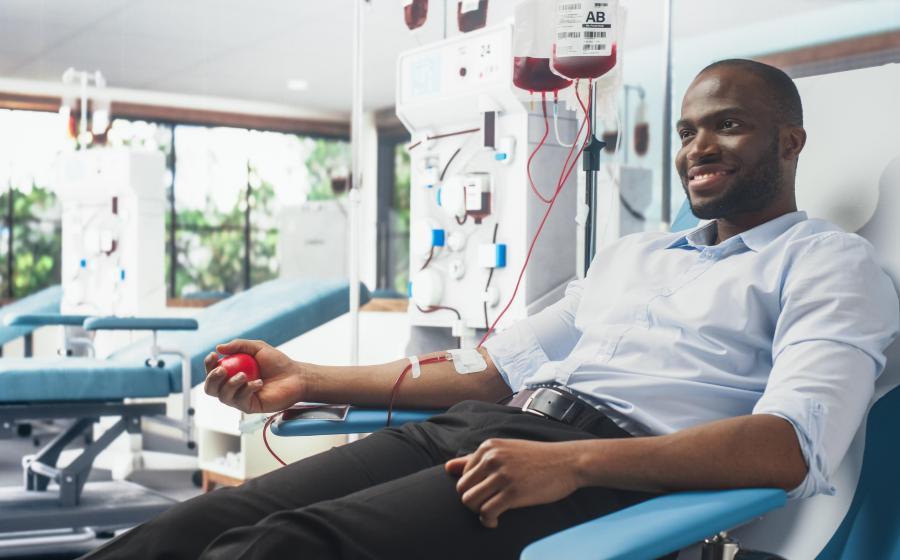
 - Heart disease is largely preventable, yet it’s still the leading cause of death in the United States. It affects millions of people, and its impact is not shared equally among all communities.
- Heart disease is largely preventable, yet it’s still the leading cause of death in the United States. It affects millions of people, and its impact is not shared equally among all communities.
 - A Convenient New Approach to Metabolic Health
- A Convenient New Approach to Metabolic Health
 - Today, millions of Americans live with undetected hypertension, unaware that it can impact even the healthiest of individuals — a lesson that Naomi Saucer* would come to learn firsthand. 1-2
- Today, millions of Americans live with undetected hypertension, unaware that it can impact even the healthiest of individuals — a lesson that Naomi Saucer* would come to learn firsthand. 1-2 “The Symplicity procedure was one of the best things I could have done for myself,” said Naomi. “The recovery wasn’t bad— honestly, the hardest part was having to take it easy for eight hours afterward, since I’m always on the go!”
“The Symplicity procedure was one of the best things I could have done for myself,” said Naomi. “The recovery wasn’t bad— honestly, the hardest part was having to take it easy for eight hours afterward, since I’m always on the go!”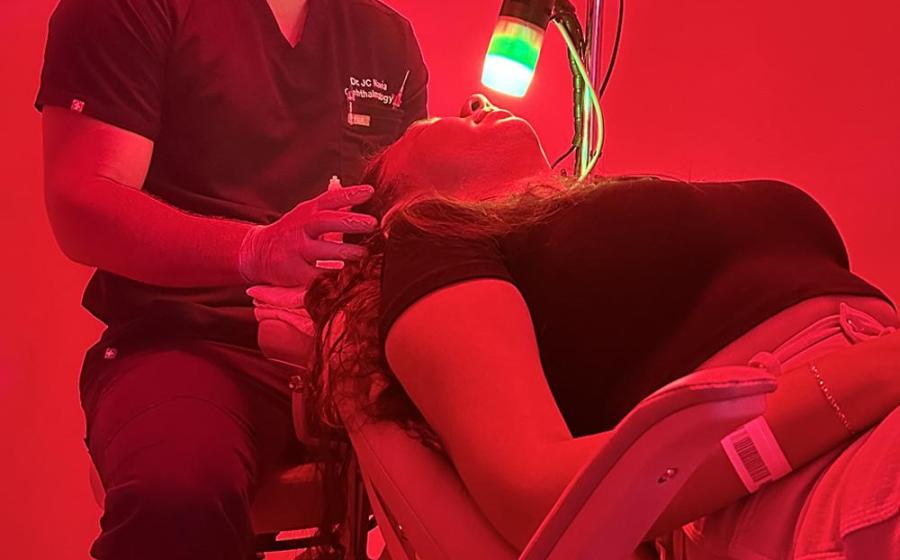
 - Those who suffer from eye infections that threaten a person’s vision have a new treatment option that is noninvasive and counters the problem of antibiotic resistance, based on recent research and clinical work.
- Those who suffer from eye infections that threaten a person’s vision have a new treatment option that is noninvasive and counters the problem of antibiotic resistance, based on recent research and clinical work.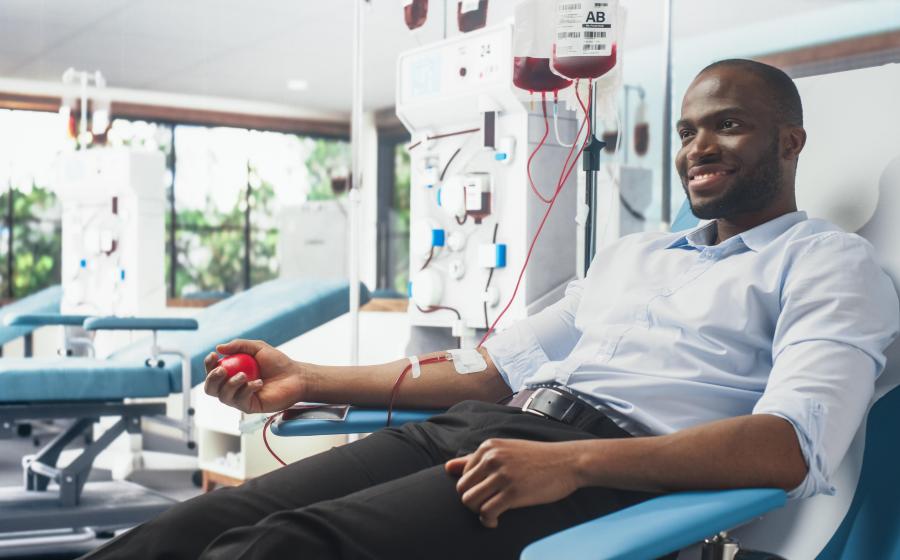
 - Every 2 seconds, someone in the United States needs blood, and a single donation can save lives. Shortages in the nation’s blood supply can happen any time. Donors, especially those who donate regularly, keep our blood supply stable.
- Every 2 seconds, someone in the United States needs blood, and a single donation can save lives. Shortages in the nation’s blood supply can happen any time. Donors, especially those who donate regularly, keep our blood supply stable. - Cada 2 segundos, alguna persona en los Estados Unidos necesita sangre. Una sola donación puede salvar vidas. En cualquier momento se puede presentar escasez en el suministro de sangre del país.
- Cada 2 segundos, alguna persona en los Estados Unidos necesita sangre. Una sola donación puede salvar vidas. En cualquier momento se puede presentar escasez en el suministro de sangre del país.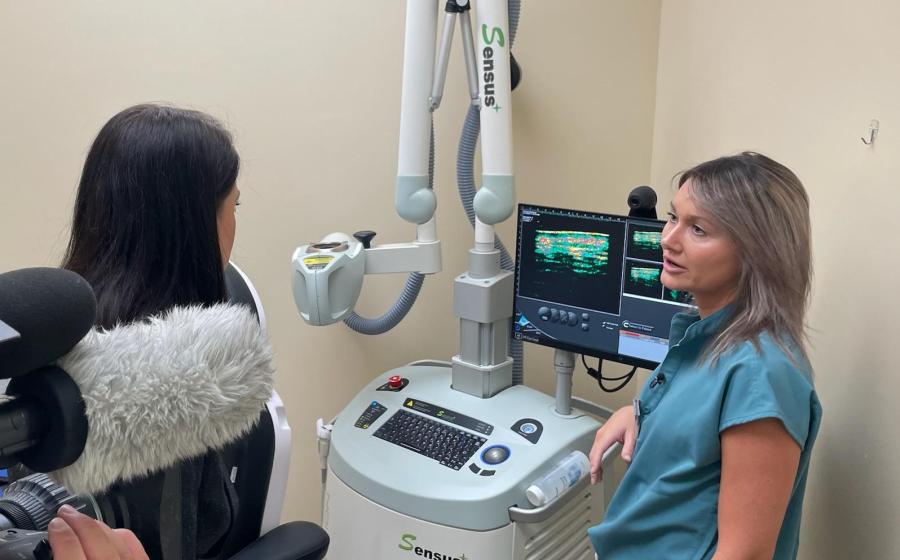
 - We take X-rays for granted, but they were unknown until German physicist Wilhelm Roentgen discovered them 130 years ago. Today, they’re associated with detecting problems with bones, teeth, and more, but one of their most important uses is curing common skin cancer.
- We take X-rays for granted, but they were unknown until German physicist Wilhelm Roentgen discovered them 130 years ago. Today, they’re associated with detecting problems with bones, teeth, and more, but one of their most important uses is curing common skin cancer.
 - Diabetes remains a growing health crisis in the United States, but many people living with diabetes are confused as to which foods should be part of their meal plan, according to the American Diabetes Association (ADA). For example, many people believe that those with diabetes or prediabetes should avoid potatoes, but in fact potatoes are highly nutritious and can be part of any healthy diet.
- Diabetes remains a growing health crisis in the United States, but many people living with diabetes are confused as to which foods should be part of their meal plan, according to the American Diabetes Association (ADA). For example, many people believe that those with diabetes or prediabetes should avoid potatoes, but in fact potatoes are highly nutritious and can be part of any healthy diet. 
 - The ScanEase OneSense device is a screening tool for diagnosing breast cancer. The device facilitates an examination that is accessible to patients of any age and body type, allowing for self-examination due to its user-friendly design in the privacy of their home. The results help assess the risk of new tissue formations in the breast. The higher the risk factor on the BI-RADS scale, the greater the likelihood of malignant tissue degeneration. In light of this, the OneSense scanning device is recommended for the primary diagnosis of breast tumors in outpatient settings and for at-home self-examinations. The scan results are visible through an app on your smartphone, which will advise whether you should consult with a physician.
- The ScanEase OneSense device is a screening tool for diagnosing breast cancer. The device facilitates an examination that is accessible to patients of any age and body type, allowing for self-examination due to its user-friendly design in the privacy of their home. The results help assess the risk of new tissue formations in the breast. The higher the risk factor on the BI-RADS scale, the greater the likelihood of malignant tissue degeneration. In light of this, the OneSense scanning device is recommended for the primary diagnosis of breast tumors in outpatient settings and for at-home self-examinations. The scan results are visible through an app on your smartphone, which will advise whether you should consult with a physician.

